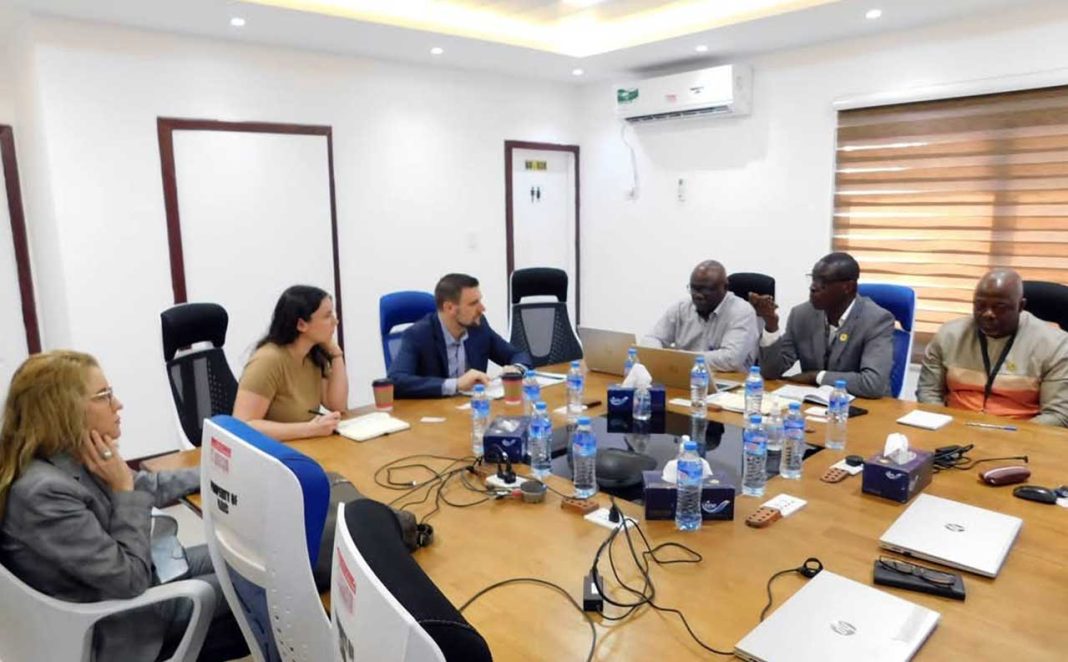A high-level team from the U.S. Millennium Challenge Corporation expected to land in Monrovia on Monday to evaluate whether Liberia is prepared for reaffirmation of eligibility for a potential second MCC Compact, a move that could reopen a major source of development financing for the country.
The delegation, led by Carrie Monahan, MCC’s Managing Director for Africa, will meet a wide range of government institutions and private-sector stakeholders over several days, the Ministry of Finance and Development said in a statement.
Officials named to the mission include senior economists and finance specialists who will gather data to inform MCC’s Constraints Analysis — a diagnostic used to identify the biggest barriers to inclusive and sustainable economic growth and to shape possible investment priorities.
The visit precedes the MCC board’s regular meeting in December 2025, when Liberia’s continued eligibility for a second Compact will be reviewed. Augustine Kpehe Ngafuan, Liberia’s Minister of Finance and Development Planning, framed the engagement as a “win win” opportunity, saying the MCC is seeking to back sectors that advance Liberia’s economic progress while creating openings for U.S. investment.
What the Compact process looks like
MCC awards large, multi-year grants called Compacts to countries that meet strict policy performance criteria in areas such as governance, economic freedom, and social investment. The process typically follows a sequence: a country must demonstrate eligibility on MCC’s scorecards; MCC conducts diagnostic work (like the Constraints Analysis) to pinpoint where investments would yield the greatest returns for poverty reduction and growth.
Compact proposals are developed in partnership with the host government and stakeholders; and the MCC board must approve the Compact before funds are disbursed and projects implemented. Compacts include monitoring and evaluation to measure results and ensure accountability.
Liberia previously entered into an MCC Compact that financed projects intended to boost economic growth and improve public services. While the details of any new Compact would depend on the forthcoming Constraints Analysis and compact negotiations, typical MCC investments target infrastructure, human capital, and reforms that strengthen the business environment — areas seen as essential to attracting private investment and expanding employment.
For Liberia, a second Compact would carry both financial and political significance. Beyond potential grant dollars, MCC engagement often signals to other donors and investors that a country is committed to policy reforms and accountable project implementation. That dynamic is especially relevant for Liberia as it seeks to accelerate recovery and broaden its economic base after years of fragility.
Stakeholder consultations and next steps
During the mission the team will meet the Ministry of Finance, the Central Bank, Liberia Revenue Authority, LISGIS, the National Investment Commission, the Liberia Chamber of Commerce, sector ministries such as Mines and Energy and Commerce and Industry, and civil society actors including the Liberia Extractive Industries Transparency Initiative. MCC specialists will use those conversations and data to complete the Constraints Analysis that will inform any compact concept.
If the December board review affirms Liberia’s eligibility, the country and MCC would move into the next stage: more detailed compact development that includes project design, costing, and consultations with implementers. Any final compact proposal would still require board approval and the host government’s commitment to implementation and reforms laid out in the agreement.
A cautious reopening after a pause
MCC’s return to Liberia comes after a temporary pause attributed to the recent U.S. political transition and evolving policy direction from the new administration. Officials in Monrovia say the mission signals renewed interest in restarting the compact development process and in aligning potential investments with opportunities for private-sector partnerships and U.S. investors.
The MCC, established by Congress in 2004, remains selective in where it invests, tying grants to policy performance and measurable results. For Liberia, the next several months will be critical: the Constraints Analysis and the December board review will determine whether the country can move forward toward negotiating a new Compact that could shape its economy.


